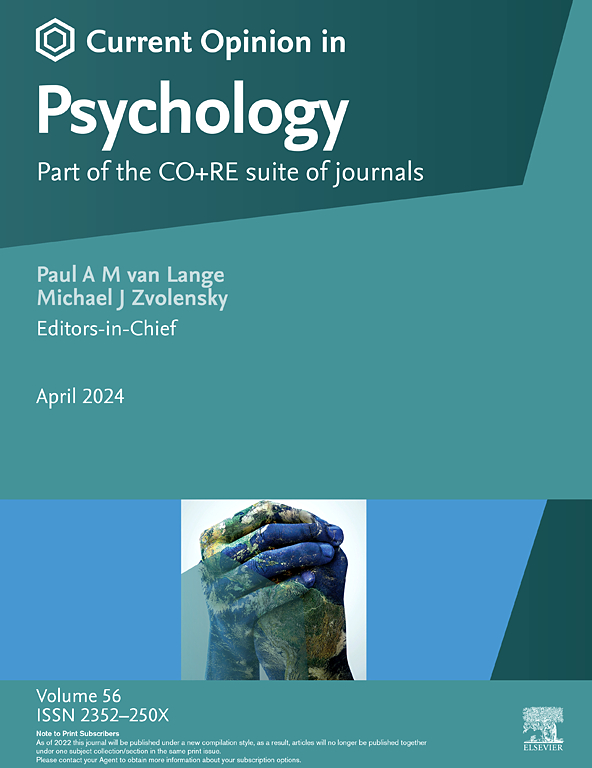使用机器学习进行人格评估的心理测量特性
IF 6.9
2区 心理学
Q1 PSYCHOLOGY, MULTIDISCIPLINARY
引用次数: 0
摘要
技术进步使人格心理学家能够超越传统的基于问卷的评估,转向基于机器学习的人格评估(ML-PA)。本文提供了ML-PA的有效性和可靠性的非系统概述,其中行为特征(例如,文本,语音,数字足迹)作为人格特征的预测因子。ML-PA显示出有希望的结构效度,特别是对于观察者报告,并且ML-PA值与基于问卷的值类似地与外部变量相关。然而,可靠性指数,特别是基于自我报告的ml - pa,被发现较低。样本量、输入数据量和特征激活等因素显著影响ML-PA的准确性。算法偏差可能对ML-PA构成威胁,在应用偏差缓解技术和最大化ML-PA性能之间存在权衡。未来的发展,包括使用大型语言模型和对可解释性的关注,预计将进一步加强使用计算方法进行人格测量。本文章由计算机程序翻译,如有差异,请以英文原文为准。
Psychometric properties of personality assessment using machine learning
Technological advancements have enabled personality psychologists to move beyond traditional questionnaire-based assessment toward machine learning-based personality assessment (ML-PA). This manuscript provides a non-systematic overview of the validity and reliability of ML-PA, where behavioral features (e.g., text, voice, digital footprints) serve as predictors of personality traits. ML-PA shows promising construct validity, particularly for observer reports, and ML-PA values are similarly correlated with external variables as questionnaire-based values. However, reliability indices, especially for self-report-based ML-PAs, have been found to be lower. Factors such as sample size, input data quantity, and trait activation significantly impact ML-PA accuracy. Algorithmic bias might pose a threat to ML-PA, and there is a trade-off between applying bias mitigation techniques and maximizing ML-PA performance. Future advancements, including the use of large language models and a focus on explainability, are expected to further enhance personality measurement using computational methods.
求助全文
通过发布文献求助,成功后即可免费获取论文全文。
去求助
来源期刊

Current Opinion in Psychology
PSYCHOLOGY, MULTIDISCIPLINARY-
CiteScore
12.10
自引率
3.40%
发文量
293
审稿时长
53 days
期刊介绍:
Current Opinion in Psychology is part of the Current Opinion and Research (CO+RE) suite of journals and is a companion to the primary research, open access journal, Current Research in Ecological and Social Psychology. CO+RE journals leverage the Current Opinion legacy of editorial excellence, high-impact, and global reach to ensure they are a widely-read resource that is integral to scientists' workflows.
Current Opinion in Psychology is divided into themed sections, some of which may be reviewed on an annual basis if appropriate. The amount of space devoted to each section is related to its importance. The topics covered will include:
* Biological psychology
* Clinical psychology
* Cognitive psychology
* Community psychology
* Comparative psychology
* Developmental psychology
* Educational psychology
* Environmental psychology
* Evolutionary psychology
* Health psychology
* Neuropsychology
* Personality psychology
* Social psychology
 求助内容:
求助内容: 应助结果提醒方式:
应助结果提醒方式:


